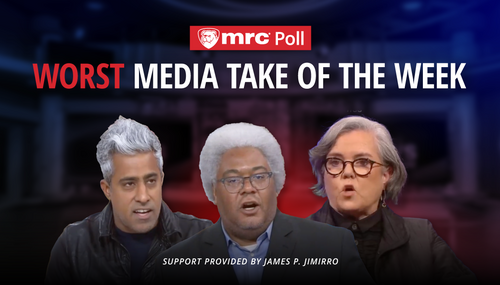For years, pop culture hyped “hooking up” as fun, easy and largely without consequences. Teens and young adults bought into the hype, much to the chagrin of educators and parents, but some young women who experienced the consequences of these casual sexual encounters are now rejecting the “hook up” culture.
CNN took notice of the changing behavior among college women – and some pop stars like Lady Gaga – in an April 19 article and attributed the shift to “the emotional devastation of many college students, particularly girls whose hearts are broken by the hook up scene.”
“Hooking up” refers to anything from kissing to sexual intercourse with a stranger, an acquaintance or a friend. No matter what the activities or with whom, a lack of commitment is the defining trademark of a hook up. Studies have shown that 75 percent of women have “hooked up” with another person while in college. As CNN noted, “the number is usually higher for men.”
Emily O'Connell, a freshman at the
“Right now, people conceive the idea of what they think from the media and friends – that the only options are to extremes: to deny everything fun including sex, or just to hook up,” she told CNN.
The media – television, Internet and music – are full of messages that promote a hook up culture.
“BlueTube,” CMI's 2009 report about YouTube content, showed how young people can easily access graphic sexual videos. A search for “porn” returned more than 330,000 results, 157 of which received more than 1 million views each.
As for music, CMI found that nearly half of the top pop songs of summer 2009 contained sexual lyrics, including Flo Rida's ode to oral sex, “Right Round” and Jermih's “Birthday Sex.”
And programs like HBO's “Sex and the City,” and the teen-oriented “Gossip Girl,” which depicted threesomes as one of the “15 Things Every College Student Must Do Before Graduating,” helped perpetuate the notion that sex outside a committed relationship, let alone marriage, is exciting, fun and utterly without consequences as long as all parties protect themselves from STDs and pregnancy. Even ABC Family's “Secret Life of the American Teenager,” which appears as a cautionary tale as it focuses on teen pregnancy, also features a hefty dose of teen promiscuity.
But young women like Frannie Boyle, a 21-year-old
“I saw it [hooking up] as a way to be recognized and get satisfaction,” she told CNN. “I felt so empty then.”
Even liberal-leaning Slate featured a recent article about women's regret of casual sex. Writer Jessica Grose labeled it “The Shame Cycle,” and noted two memoirs scheduled for release this year about women regretting their sexual activities, including Julie Klausner's “I Don't Care About Your Band” and Hephzibah Anderson's “Chastened.”
Klausner noted in her book, “When you cry about things not working out, you're crying not only because a guy you slept with doesn't seem to care you're alive, but also because you're ashamed of yourself for crying.”
Pop stars like Lady Gaga and Kelly Clarkson also recently decried the hook up culture. Lady Gaga announced earlier this month that she was celibate, and urged her fans to “get to know people,” directly contradicting the nature of hook ups. She told her fans, “I can't believe I'm saying this – don't have sex. I'm single right now and I've chosen to be single because I don't have the time to get to know anybody. So it's okay not to have sex, it's okay to get to know people.”
Clarkson took the opposite tact usually used in pop songs and sang in her hit 2009 song, “I Do Not Hook Up,” “Oh, no I do not hook up, up I go slow/So if you want me, I don't come cheap.”
The experiences of Boyle, Klausner and Anderson indicate that casual sex is not as easy as depictions of it look, and follow what experts say about it.
Laura Sessions Stepp, author of “Unhooked: How Young Women Pursue Sex, Delay Love and Lose at Both” explained some of the consequences of “hooking up” in a 2007 Marie Claire interview.
“Casual sex may make later relationships more difficult, particularly if it becomes a pattern, because cheating is common,” she stated. “Trust is elusive. You don't learn how to trust someone; you don't learn how to treat someone in a caring way. And I think if you don't get to practice those things, it's going to be harder down the road to have a successful relationship or marriage.”
Dr. Miriam Grossman, a psychiatrist and author of “Unprotected” wrote about the different effect hooking up has for women and men in a 2008 column. “Intimacy releases oxytocin, a primarily female hormone that fuels feelings of attachment and trust,” she explained. “It alters brain chemistry, so [a woman] is more likely to overlook a guy's faults, and to take risks she otherwise wouldn't. A girl surely doesn't want her brain drenched with oxytocin when making critical decisions like: What do I think of him? How far do I want this to go?”
Research out of
An April 2010 study from James Madison found that while both women and men favored traditional dating over simply hooking up with a person, women wanted a relationship more than men and feared they would “become emotionally attached to a partner who is not interested in them.”
At Duke, researchers found that only about one-third of students had participated in a hook up during college, and that less than half of those hook ups involved oral sex or intercourse.
Like this article? Sign up for "Culture Links," CMI's weekly e-mail newsletter, by clicking here.





